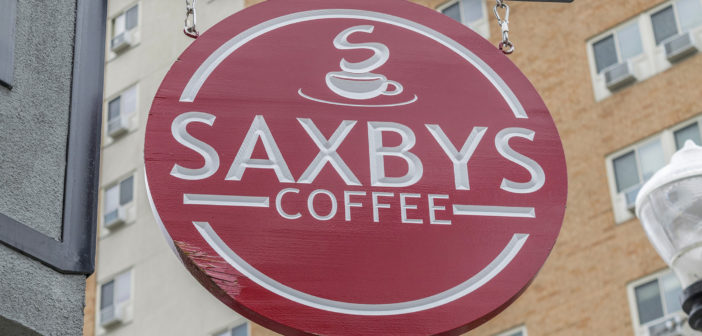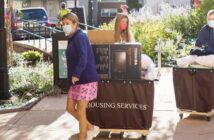There are more than 10 different locations across Lehigh’s campus to buy coffee. Within walking distance of campus that number doubles.
Thetab.com recently published a story using data from GrubHub claiming Lehigh is the most caffeinated college in America. Lehigh was ranked No. 3 on this survey in 2014.
Though the methods used to collect this data are unclear, students can be seen buying and drinking coffee all over campus. There are places to get coffee in both of Lehigh’s libraries, coffee shops within walking distance of Asa Packer campus and promotions through apps like STRIVR that allow students to order coffee to their dorms or study spots.
Paul Asadourian, ’17, president of the Peer Health Advisers, admits he consumes a lot of caffeine. He said he feels more awake and focused throughout the day when he drinks coffee.
“I don’t think Lehigh students drink more caffeine than students on any other college campus, but I could see how it is possible,” Asadourian said. “Lehigh is a very rigorous academic and social institution, so students likely rely on caffeine to keep up.”
Asadourian recommends having one cup of coffee a day. He said exercising, maintaining a healthy diet and getting enough sleep can help students avoid feeling like they need additional caffeine.
“If you take a 20 minute nap each afternoon you’ll feel refreshed,” Asadourian said. “If you time it right it really works.”
Asadourian said he started drinking more coffee when he came to Lehigh and he believes his peers did, too. However, not all students consume caffeine solely to increase their energy levels.
Nick Wagner, ’19, loves coffee.
“A lot of the reason I drink coffee is simply because I enjoy it as a beverage, but the energy boost is certainly welcome, particularly during long days, late nights or early mornings,” Wagner said.
Wagner was a coffee drinker before he came to Lehigh, so unlike Asadourian, his caffeine intake did not increase when he came to college.
Wagner does not consider himself a “caffeine junkie.” He feels his daily caffeine intake is at a healthy level.
“I don’t think my consumption of caffeine on a regular basis is at a level which would prompt any side affects,” he said.
According to the Food and Drug Administration, caffeine can increase heart rate and blood pressure, cause an uneven heart rhythm and make it more difficult to fall and stay asleep.
Both Asadourian and Wagner said they can feel when they have had too much caffeine because they experience the jitters and hyperactivity. Wagner said he also feels differently when he has not consumed any caffeine.
“I’m not proud of it, but I probably am more likely to have a bit of a headache or slight sluggishness on a day when I haven’t consumed any caffeine,” Wagner said. “Nothing even remotely devastating, but I guess somewhat noticeable.”
Asadourian said students tend to consume more caffeine during 4 o’clocks and finals.
Elliot Behar, ’19, said he doubles his caffeine intake when he’s studying for a test.
“I always have a cup of coffee in the morning,” Behar said. “When I have a test I usually get a second cup either before or after dinner to keep myself awake and focused. During finals, I may even have three cups in a day.”
Behar said he doesn’t really feel different when he drinks two cups, but he notices he has difficulty falling asleep when he consumes more than that.
Not all students drink coffee, though, as there are other ways to feel awake without experiencing the negative side effects the beverage might cause.
Netta Cudkevich, ’19, never drinks coffee.
“I get shaky when I drink it,” Cudkevich said. “I feel super energized for an hour or two and then I crash. I don’t think the crash is worth the hour of energy.”
People are usually shocked when Cudkevich tells them she only drinks decaf or caffeine-free drinks.
“I have heard there are lots of organic alternatives, like increasing your vitamin B intake and various herbal remedies, but I have never tried anything,” Cudkevich said. “I usually just have a bowl of oatmeal and an apple in the morning and I am ready to go.”
Cudkevich said she gets sufficient energy this way. While this is enough to sustain her at first, she begins to feel tired after her classes, around 4 p.m., but usually solves this problem with a short nap or a granola bar for a quick energy boost.
“Caffeine is not the only way to stay energized,” Cudkevich said. “If you stay healthy you will rely less on caffeine.”






Comment policy
Comments posted to The Brown and White website are reviewed by a moderator before being approved. Incendiary speech or harassing language, including comments targeted at individuals, may be deemed unacceptable and not published. Spam and other soliciting will also be declined.
The Brown and White also reserves the right to not publish entirely anonymous comments.